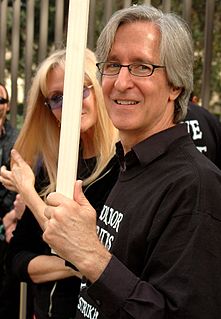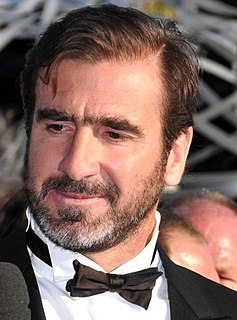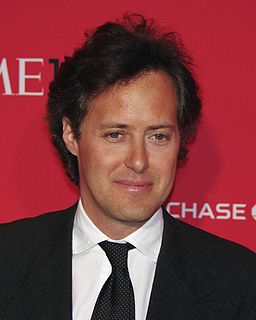A Quote by Mick Garris
My first teacher was Steven Spielberg. I worked on Amazing Stories. That was my first job, as a writer and as a story editor. Watching him and his command of the tools of filmmaking, and his admiration for writing and the story itself, was the greatest lesson I ever had.
Related Quotes
The ‘experimental’ writer, then, is simply following the story’s commands to the best of his human ability. The writer is not the story, the story is the story. See? Sometimes this is very hard to accept and sometimes too easy. On the one hand, there’s the writer who can’t face his fate: that the telling of a story has nothing at all to do with him; on the other hand, there’s the one who faces it too well: that the telling of the story has nothing at all to do with him
I was very blessed it was Steven Spielberg who made the movie. He was very much into the redemption side of the story. They asked him in an interview why he had owned the rights to this story for 20 years before he made the movie, and he said, 'I wanted to see what the real Frank Abagnale did with his life before I immortalised him on film.'
The first responsibility of the Muslim is as teacher. That is his job, to teach. His first school, his first classroom is within the household. His first student is himself. He masters himself and then he begins to convey the knowledge that he has acquired to the family. The people who are closest to him.
A story must be told in such a way that it constitutes help in itself. My grandfather was lame. Once they asked him to tell a story about his teacher. And he related how the holy Baal Shem used to hop and dance while he prayed. My grandfather rose as he spoke, and he was so swept away by his story that he himself began to hop and dance to show how the master had done. From that hour he was cured of his lameness. That's how to tell a story.
My last point about getting started as a writer: do something first, good or bad, successful or not, and write it up before approaching an editor. The best introduction to an editor is your own written work, published or not. I traveled across Siberia on my own money before ever approaching an editor; I wrote my first book, Siberian Dawn, without knowing a single editor, with no idea of how to get it published. I had to risk my life on the Congo before selling my first magazine story. If the rebel spirit dwells within you, you won't wait for an invitation, you'll invade and take no hostages.
In 1990 I did a story with Helena Christensen about a woman who lives in a trailer in the middle of the desert and finds a little crushed UFO with a martian who has survived the crash. She takes him home, and they fall in love. Later he has to meet with his fellow martians who have arrived to rescue him. It's a sad ending. This was my first truly narrative story and apparently the first narrative story in fashion photography.
Steven's Spielberg is one of the most visually talented and character-oriented directors I've ever worked with. And I learn from him every time I watch one of his movies. Good or bad - and he has made some awful movies - they're never uninteresting. He's made four or five of the greatest movies of all time. Perfect movies, like E.T. or Schindler's List or Saving Private Ryan.
With my two brothers, Jean-Marie and Joel, I wrote a two-page story and wanted to make some kind of movie. We met a French production company, called Why Not?, and the first name we put on the list was Ken Loach. It was a dream for all of us. So, we tried and we met Ken and Paul Laverty, his writer, and they read the two pages and were inspired by that to do something. Paul had the freedom to do his own story - and he wrote his own story, which is better than the one we'd written.
A writer never forgets the first time he accepted a few coins or a word of praise in exchange for a story. He will never forget the sweet poison of vanity in his blood and the belief that, if he succeeds in not letting anyone discover his lack of talent, the dream of literature will provide him with a roof over his head, a hot meal at the end of the day, and what he covets the most: his name printed on a miserable piece of paper that surely will outlive him. A writer is condemned to remember that moment, because from then on he is doomed and his soul has a price.
I didn't know how story worked. So, when writing the screenplay, people introduced me to the science of it. And I'm grateful. I'll probably use that information for the rest of my career, in terms of writing novels or writing stories. And then, of course, to help me live a better story, a more meaningful story





































